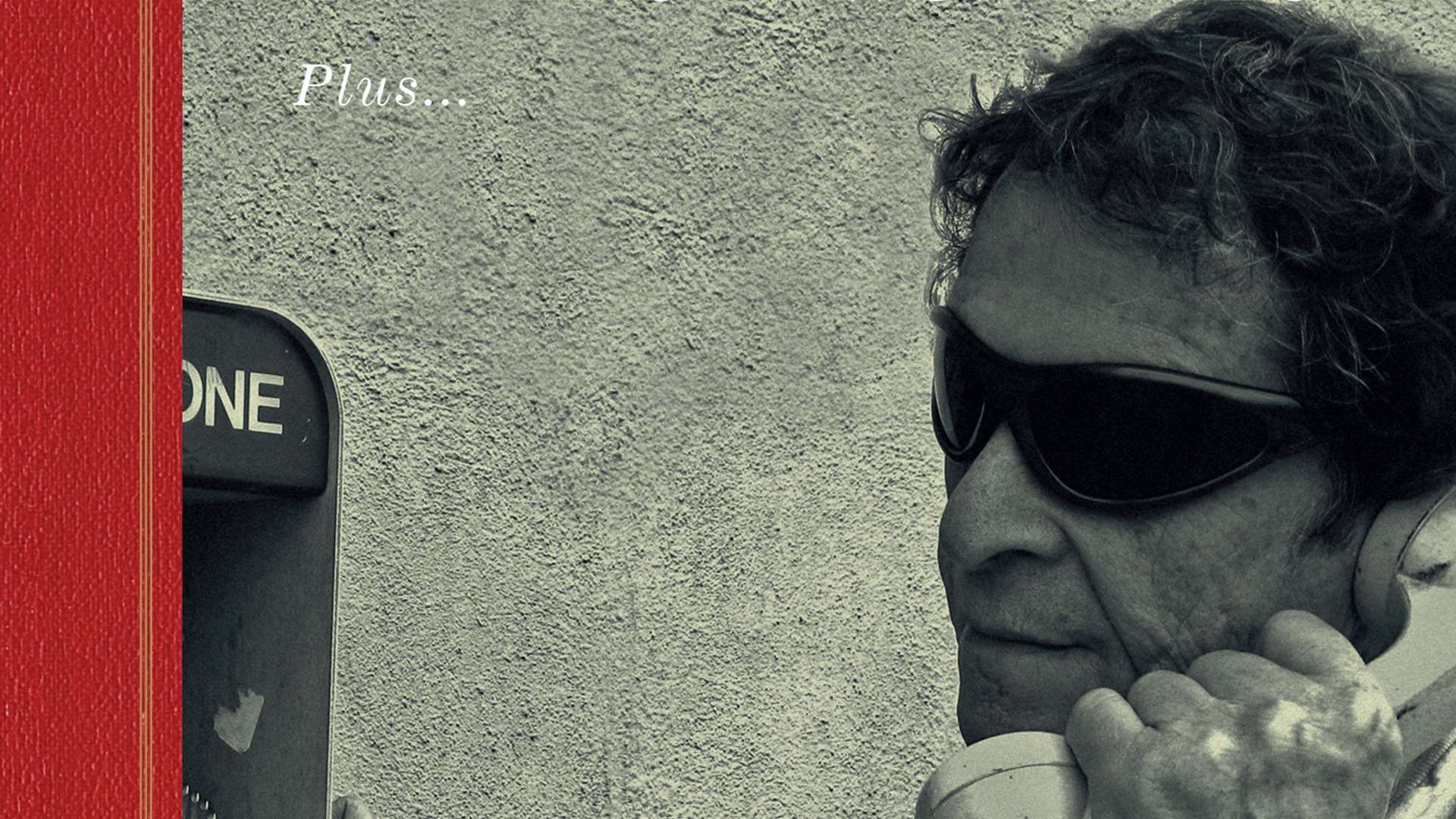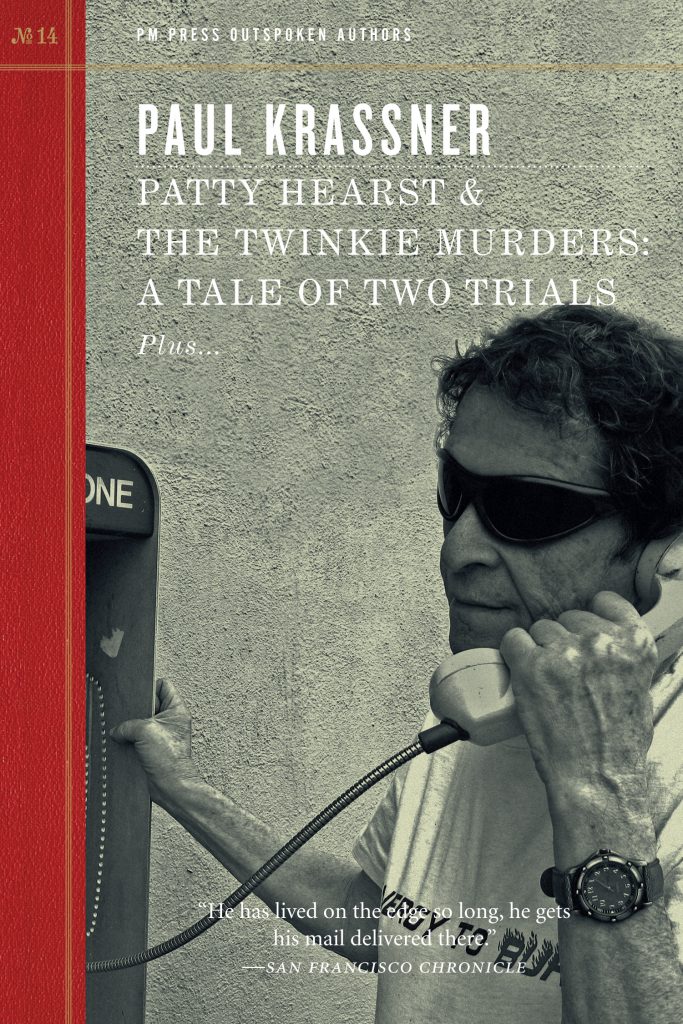By Joseph E Green
Dissenting Views
October 16th, 2014
“I really lost it that day.”
-Dan White
“Sometimes paranoia is just having all the facts,” William S. Burroughs once said. For his part, Paul Krassner once pointed out to television host Tom Snyder that “conspiracy and paranoia are not synonymous.” In his new book, Patty Hearst & the Twinkie Murders: A Tale of Two Trials, counterculture Hall of Famer* and former Realist publisher Krassner gives us an inside view on two incidents that prove out both those statements. Both were enormous public sensations at the time.
The first began on February 4, 1974, when Patricia
Hearst, the granddaughter of William Randolph Hearst, (newspaper king
and thinly disguised subject of Orson Welles’s Citizen Kane),
was kidnapped by a group calling themselves the Symbionese Liberation
Army. The SLA, led by Donald DeFreeze, traumatized and brainwashed the
young college student until she eventually joined them in committing
crimes, including a spectacular bank robbery that captured the
attention of the country. Eventually the FBI caught up with them, and
after a shootout DeFreeze and five others were either shot or burned to
death. Hearst herself eluded the police for a while longer before
being apprehended on September 18, 1975 in San Francisco.

Patty Hearst, finding her beach.
However, as Krassner points out in his rollicking and frequently hilarious prose, there were signs of more than casual government involvement in this one. John Judge always told me to find people who connect one event to another, who pop up on the timeline, linking atrocities. It has served me well. Krassner points us to a certain Charles Bates of the FBI. Bates was an FBI special agent in the Chicago office when Fred Hampton and Mark Clark were murdered in December 1969, but ended up in Washington D.C. in 1971, just in time to be put in charge of the investigation into Watergate the next year. Two years later, in 1974, Bates was placed in charge of the hunt for the SLA and Patty Hearst. (36)
Also interesting can be the locations. Before Donald DeFreeze became ‘Cinque,’ the leader of the SLA, he spent 1970 at Vacaville Prison in California, following a stretch as a police informer for the LAPD. His handler, a man named Westbrook, Krassner notes, worked for the CIA. (18) Vacaville has a notorious reputation, having been named in the mid-1970s in the Senate investigations into MK-ULTRA as a result of the testimony of Dr. Sidney Gottlieb. The prison had been the site of numerous psychological tests on the inmates, some including LSD, going back to the 1950s, when a young Charles Manson also had been incarcerated at Vacaville. Krassner notes that an investigator found that DeFreeze had set up a conjugal visit program while in prison and had received visits not only from future kidnappers but also by Patty Hearst herself, under an assumed name. (32) (Later, Hearst testified that she was “struck by a terrible fear of being kidnapped” just before she was kidnapped.)
California congressman Leo Ryan, who had leaked information and spearheaded inquiries into government experimentation, including into the development of Donald DeFreeze, was shot to death while visiting Guyana where he ran afoul of a certain Jim Jones. Jones forms part of the background for the second essay in this book, as Krassner details his experiences sitting in on the trial of Dan White, the man who shot Harvey Milk and George Moscone on November 27, 1978, just a couple of weeks after the Jim Jones Guyana ‘suicides.’ (It should be noted that the Guyanese coroner, Dr. Mootoo, found no suicides had occurred; his report documented them all as murders. See The Black Hole of Guyana by John Judge.) Also, Milk and Jones enjoyed a close relationship right up until their deaths, as demonstrated by their frequent correspondence.
The madness of both trials is underscored when Krassner contrasts the sentencing of the two subjects, Patty Hearst and Dan White. Hearst, who had been kidnapped and brainwashed, received 35 years. (This was later commuted.) Dan White, who first murdered Moscone in cold blood (shooting him in the body and then twice in the head, after which pausing to reload) and then walking over the Harvey Milk’s office to shoot him there. White got 7 years.
White received such a relatively minor sentence because of the ‘Twinkie defense,’ provided by his attorney Martin Blinder in a phrase that Krassner himself helped to popularize. (71) The defense stated that White had been depressed and eaten too much sugary junk food, which put him in a poor mental state. After the verdict was announced, there was (understandably) a riot in the neighborhood, which resulted in Krassner getting beaten by a cop and receiving permanent injuries that affect him to this day (77-78). When Krassner reports the news, it’s as an eyewitness and participant.
Patty Hearst & the Twinkie Murders: A Tale of Two Trials is a must-read for anyone interested in the period, in the dirty realities behind the illusion of large media, or in political research in general. The book is fast, funny, memorable, and sharp as hell; and like all great satire, it makes unappetizing truths easier to swallow.
*I don’t mean this poetically. There is a Counterculture Hall of Fame, and Krassner’s been elected to it. In 2001.







